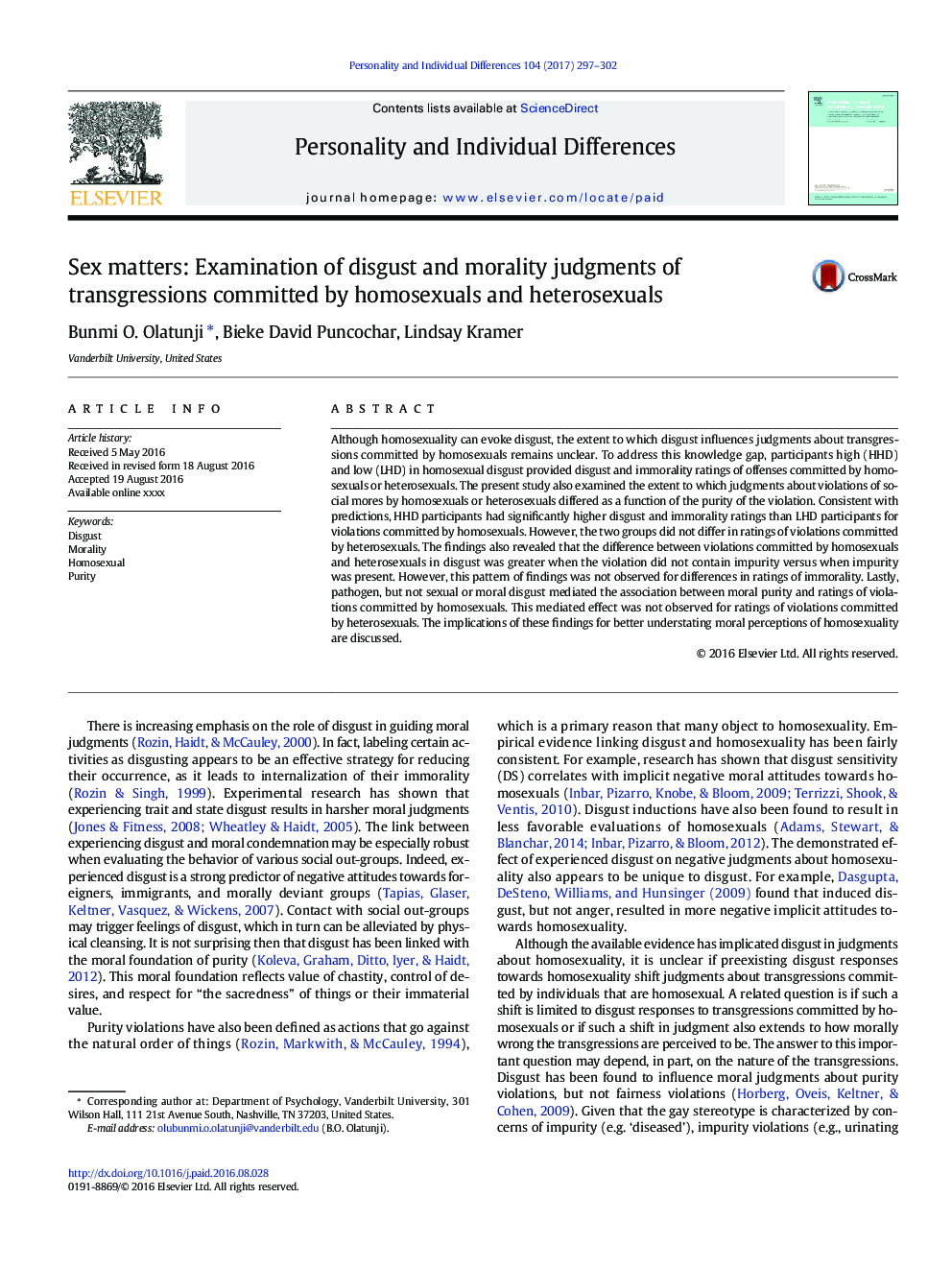| Article ID | Journal | Published Year | Pages | File Type |
|---|---|---|---|---|
| 7249498 | Personality and Individual Differences | 2017 | 6 Pages |
Abstract
Although homosexuality can evoke disgust, the extent to which disgust influences judgments about transgressions committed by homosexuals remains unclear. To address this knowledge gap, participants high (HHD) and low (LHD) in homosexual disgust provided disgust and immorality ratings of offenses committed by homosexuals or heterosexuals. The present study also examined the extent to which judgments about violations of social mores by homosexuals or heterosexuals differed as a function of the purity of the violation. Consistent with predictions, HHD participants had significantly higher disgust and immorality ratings than LHD participants for violations committed by homosexuals. However, the two groups did not differ in ratings of violations committed by heterosexuals. The findings also revealed that the difference between violations committed by homosexuals and heterosexuals in disgust was greater when the violation did not contain impurity versus when impurity was present. However, this pattern of findings was not observed for differences in ratings of immorality. Lastly, pathogen, but not sexual or moral disgust mediated the association between moral purity and ratings of violations committed by homosexuals. This mediated effect was not observed for ratings of violations committed by heterosexuals. The implications of these findings for better understating moral perceptions of homosexuality are discussed.
Keywords
Related Topics
Life Sciences
Neuroscience
Behavioral Neuroscience
Authors
Bunmi O. Olatunji, Bieke David Puncochar, Lindsay Kramer,
